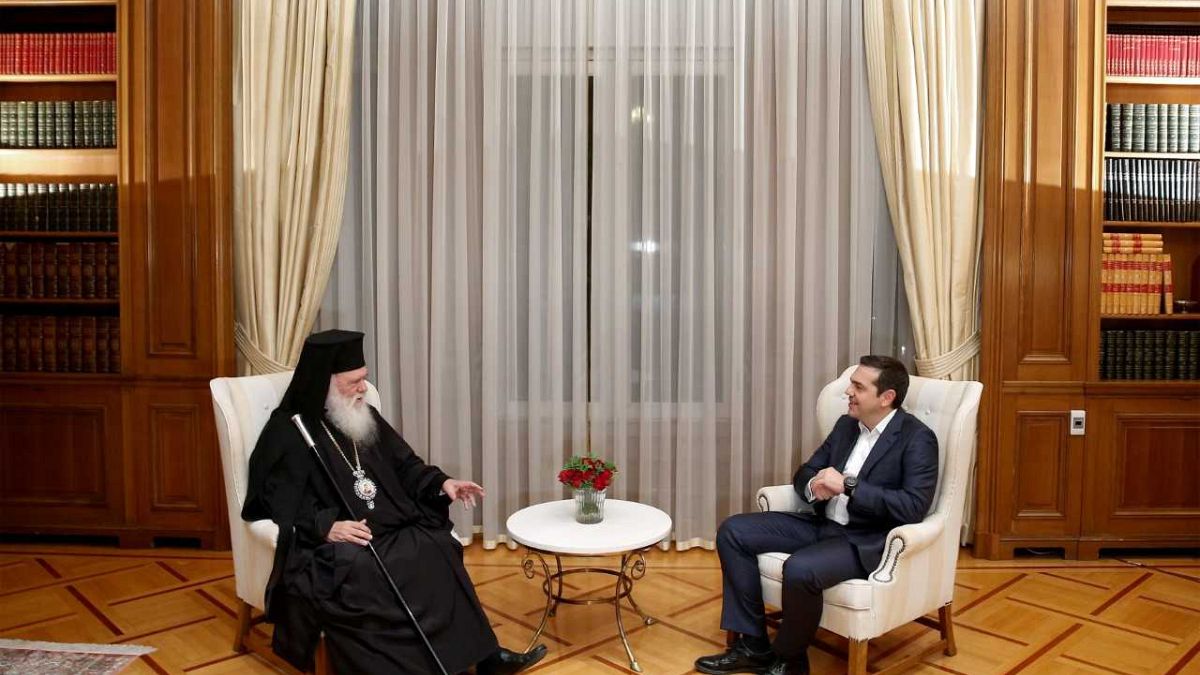Greece and its Orthodox Church have tentatively agreed on Tuesday to remove some 10,000 clergy from the state payroll, according to Reuters.This landmark deal could clearly define the distinction between church and state in Greece
Greece and its Orthodox Church tentatively agreed on Tuesday to remove around 10,000 clergies from the state payroll, according to Reuters.
This landmark deal could clearly define the distinction between Church and State in Greece.
The Orthodox Church in Greece has played a crucial role in public life for years and for many Greeks, their national pride goes hand-in-hand with their religion.
This deal was agreed upon in Athens between Archbishop Ieronymos of the Church of Greece and Greek Prime Minister Alexis Tsipras. Under the deal, the state will in the future transfer an annual state subsidy to a special fund for the church to pay priests' salaries.
Under the new deal, an annual payment of around €200 million will be paid regardless of if the Church increases or reduces the number of priests. In return, the Church of Greece has agreed not to oppose a motion to make Greece religiously neutral.
The two leaders said Greece will continue to pay clergy salaries but no longer as civil servants. In 2015, 18% of the Greek workforce was employed by the government, according to the OECD.
The agreement also aims to settle decades-long property disputes between Greece and the Church of Greece, which is one of the country's largest real estate owners, Reuters said.
The country has been one of the European Union's weakest performing economies since a debt crisis was triggered following the 2008 global financial meltdown. Creditors for Greece have urged the government to sell assets and reduce the number of public employees in order to pay back the country's external debt.
This agreement must still be approved by the cabinet, parliament and church leaders. The agreement coincides with discussions in the Greek parliament to revise the country's constitution.
According to Reuters, Tsipras assured the Archbishop that the autonomy of the Church will be protected regardless of any constitutional change.
Are Church and State separate elsewhere in Europe?
Religion and government went gone hand-in-hand in Europe for centuries.
Recently, more and more countries in the European Union have tried to distinguish the roles both play in society.
In its Constitution, the EU promises to guarantee religious freedom and non-discrimination. The EU also promises to respect religious diversity and maintain an open dialogue with the many churches and religious communities.
Yet, according to research published by the European Liberal Forum in 2012, many EU countries still have religious life intertwined with their country's constitution to some degree.
Christianity is mentioned in the preamble of five European countries' constitutions — Ireland, Greece, Poland, Germany and Slovakia.
Six other countries — Denmark, Finland, Spain, Austria, and Portugal — have constitutions that establish a formal marriage between state and church by giving one specific church a position above others.
Great Britain has a set of laws proclaiming that the country has two state churches: The Anglican Church of England and the Presbyterian Church of Scotland.
The Constitution of Malta establishes Catholicism as the state religion, but still guarantees freedom of religion as a constitutional right to its citizens.
Church and State are formally separated in France, Luxembourg and the Netherlands and in Sweden, State and Church were separated by law in 2000, but the state still pays for the upkeep of church properties.
While in Italy, the constitution states: "The State and the Catholic Church are independent and sovereign, each within its own sphere."
